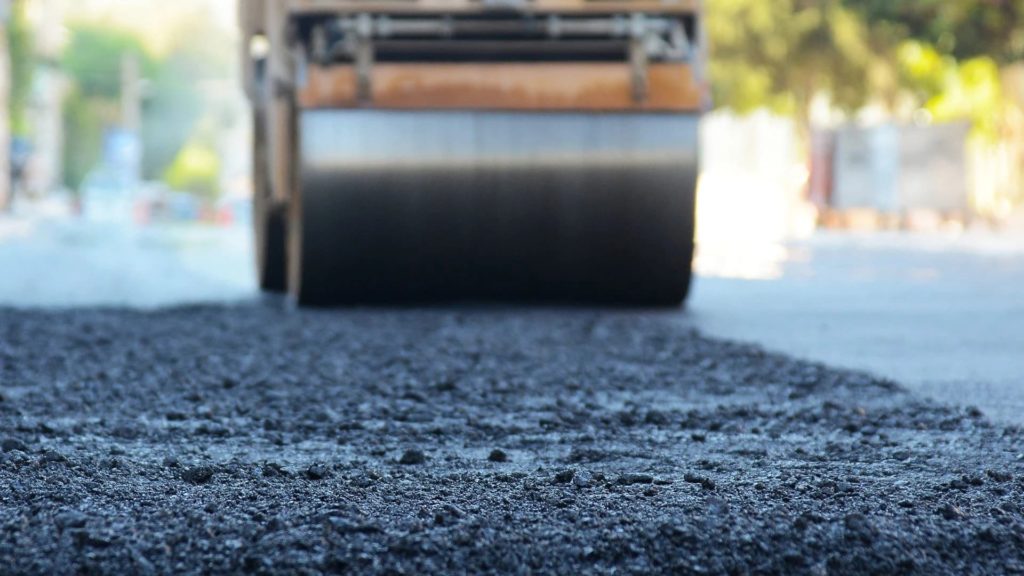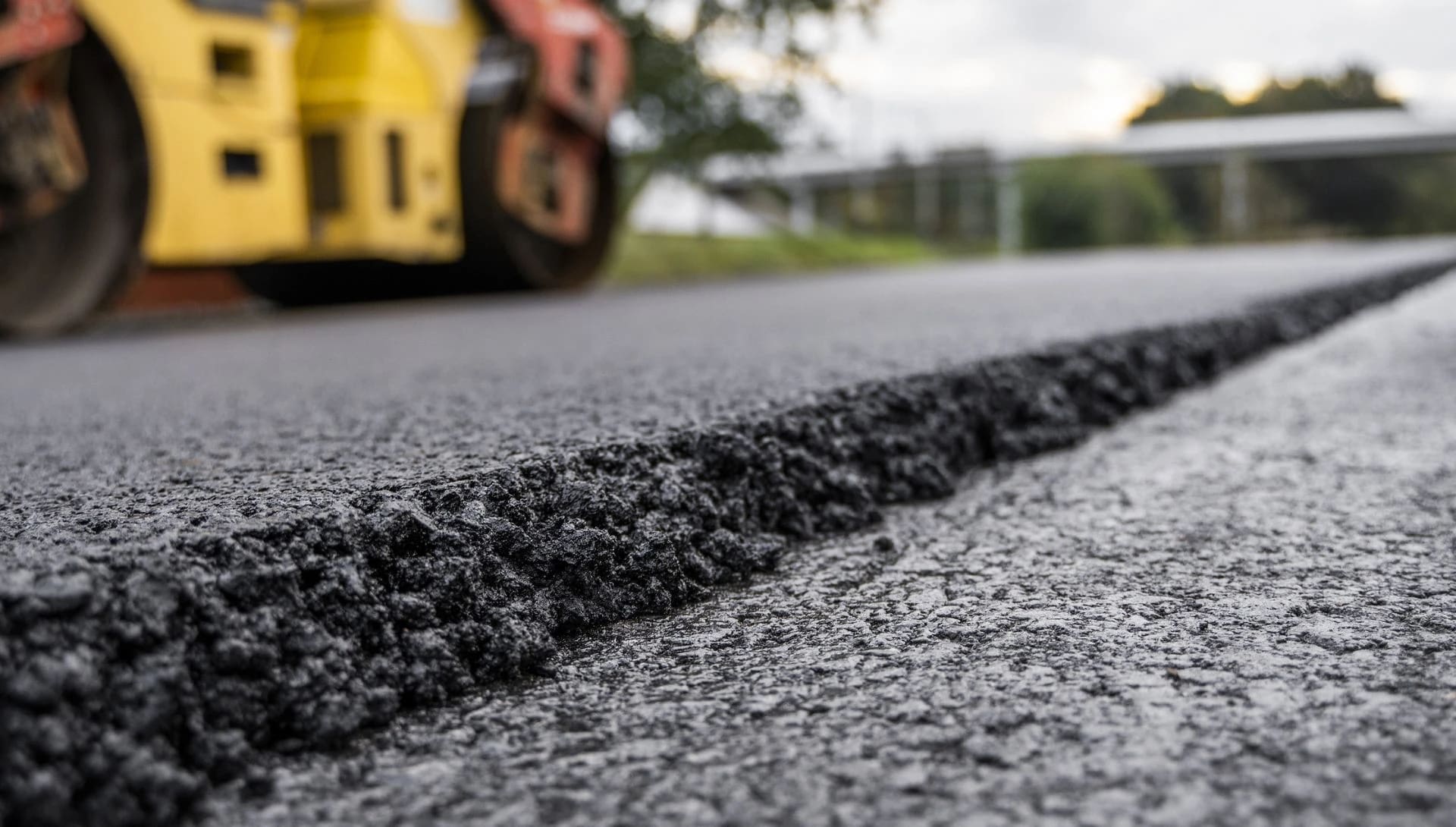At TSL, we lay about 10,000 tonnes of asphalt per year. In other words, it’s safe to say our asphalt contractors know a thing or two about this versatile construction material. It’s used for everything from sports courts to driveways and is flexible enough to adapt to Auckland’s weather without sacrificing durability.
However, not all asphalt mixes are appropriate for every situation. This guide breaks down the many different types of asphalt mixes, exploring everything from hot mix to porous asphalt. Discover why one might be great for a driveway while another is better for a quick patch!

Hot Mix Asphalt (HMA)
Hot Mix Asphalt (HMA) is the go-to choice for most road projects, and for good reason. It’s mixed at high temperatures (usually between 150-180°C), which helps it compact tightly and last longer. If you’re looking for something that can handle heavy traffic and stand up to wear and tear, this is it.
These high temperatures are tough to work with, requiring a very experienced hand. That said, investing in this kind of asphalt pays dividends, as the hot application guarantees a lifetime of 25 years minimum.
Best uses for hot mix asphalt:
- Major roadways
- Highways
- Airport runways
- High-traffic commercial areas
Warm Mix Asphalt (WMA)
Think of Warm Mix Asphalt (WMA) as the eco-friendly cousin of HMA. It’s made at a lower temperature (100-140°C), which cuts down on fuel use and emissions. It’s also easier to work with in cooler conditions, making it a solid choice for projects where sustainability is a key factor. To put a real number on that, for every 1,000 tonnes of warm asphalt mix applied, we’re saving roughly 2.7 tonnes of CO2 emissions when compared to hot mix.
Best uses for warm mix asphalt:
- Road construction in cooler parts of Aotearoa
- Eco-conscious construction
- Projects where reducing emissions is a priority
Cold Mix Asphalt (CMA)
Cold Mix Asphalt (CMA) is the ultimate quick-fix solution. Unlike HMA and WMA, it’s not heated during production. Instead, it uses bitumen emulsions to keep everything together, making it great for quick repairs. You can use it in almost any weather, and it usually doesn’t require heavy machinery to apply for small amounts and patches.
Generally speaking, cold mix asphalt is mostly used for DIY jobs and residential repairs. While there are applications for this in the civil engineering sector, most civil repairs are done using hot or warm mix asphalt for a high-quality finish. That said, CMA can be useful as a temporary measure.
Best uses for cold mix asphalt:
- Pothole repairs
- Low-traffic rural roads
- Temporary patchwork
Porous Asphalt
If water can’t get through asphalt, it starts to puddle on top and causes all sorts of issues from there. If drainage is a concern, porous asphalt is the way to go. It’s designed to let water pass through rather than pool on the surface, helping to reduce runoff and improve stormwater management. This makes it an ideal choice for areas that get a lot of rain, which, in Auckland’s case, is pretty much everywhere.
In fact, NZTA Waka Kotahi prioritises this asphalt mix as a surfacing course on road pavements, creating an even, porous surface that allows water to flow easily down and away.
Best uses for porous asphalt:
- Parking lots
- Sports courts
- Environmentally-conscious urban developments
Dense-Graded Asphalt
Dense-graded asphalt is a jack-of-all-trades option that comes in two varieties: fine-graded for smooth surfaces like driveways and coarse-graded for more heavy-duty jobs like road bases. Choosing the right type for your project is crucial to achieving the desired performance and longevity.
Also known as asphaltic concrete, this mix is continuously graded, meaning the aggregate sizes are well-distributed for a uniform, smooth surface. Its durability and versatility make it one of the most popular choices for driveway paving.
Best uses for dense-graded asphalt:
- Driveways
- General-purpose road surfacing
- Pathways
As you can see, there are many different types of asphalt on the market—reflecting both the evolution of civil engineering and the importance of choosing the right contractor. Even the highest-quality asphalt can fail if used in the wrong context. That’s why it’s essential to ensure your team understands the goals of your project and how the asphalt will be used.
Trust TSL’s Asphalt Contractors to Recommend the Right Mix for Your Project
At TSL, we have worked with some of New Zealand’s biggest names. We cover all road areas, from simple cold patch pothole repairs to entire recreational sports courts.
Whether you need a repair or a new surface, our specialist asphalt surfacing team is here to help. Get in touch today for an initial consultation.


